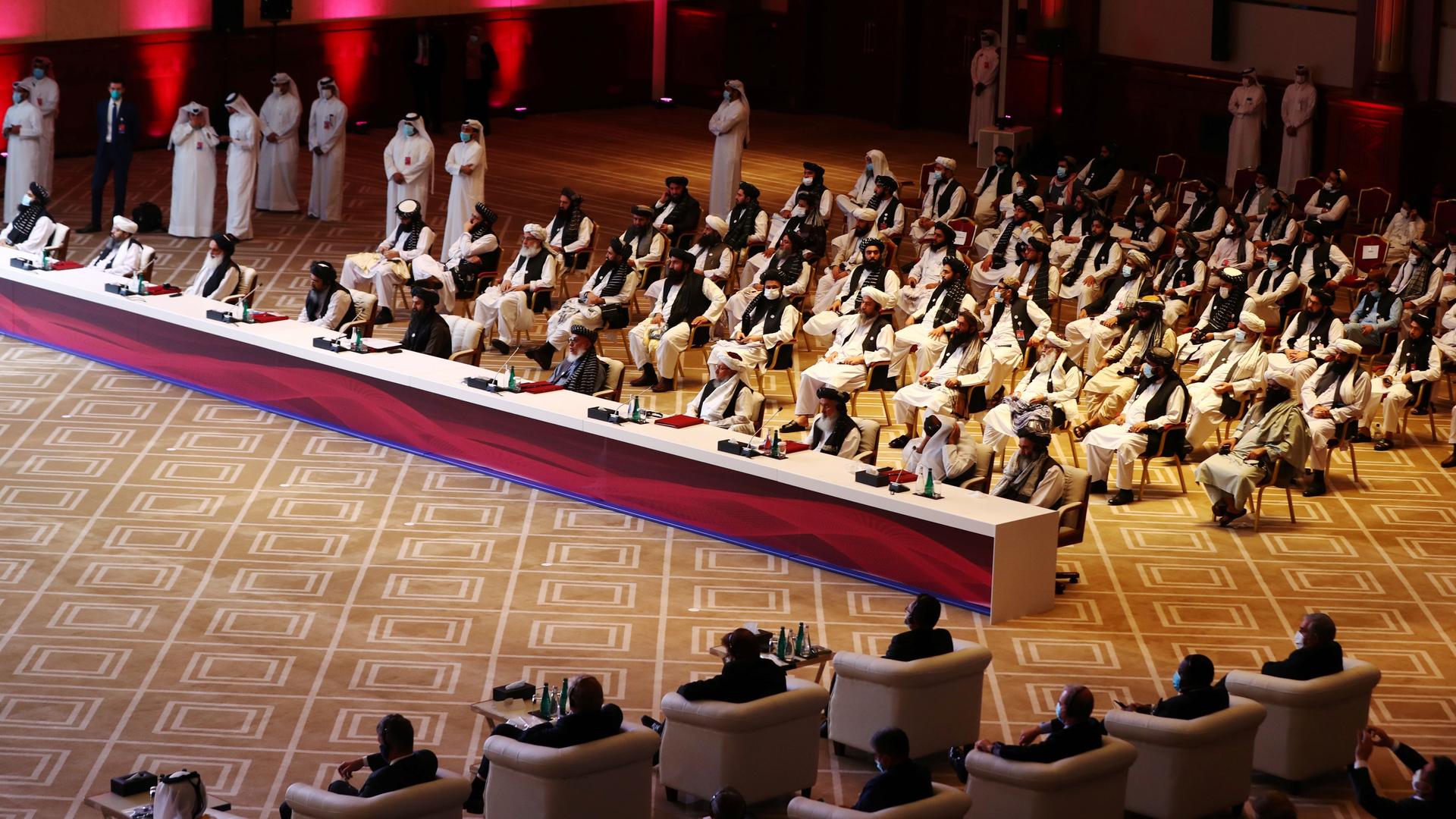Afghan women negotiating with the Taliban say they feel ‘heavy responsibility’
After almost two decades of war, representatives from the Afghan government are meeting with Taliban leaders in Doha, Qatar, to discuss a peace agreement.
Four of the 42 negotiators are women — all on the Afghan government team — and they are looking to stand up for their hard-won rights.
Related: Afghan peace talks set to start despite escalating attacks
The Taliban ruled Afghanistan in the 1990s. They instilled a sense of fear among many women. They banned them from leaving their homes without a male chaperone, restricted their education and forced them to wear burqas — the loose-fitting outfit that covers their bodies from head to toe.
The US invasion in 2001 toppled the Taliban and in the years since there has been major progress in women’s rights. Now, with the possibility of another Taliban power grab, many worry about losing those rights.
Habiba Sarabi, speaking from Doha, said she was not nervous about the meetings, but that she came to the Qatari capital with a big task.
“It’s not easy work. We feel a kind of heavy responsibility on our shoulders.”
“It’s not easy work,” she said. “We feel a kind of heavy responsibility on our shoulders.”
Related: Hundreds of prisoners missing after Afghanistan prison attack
She said back home, women are counting on her and her colleagues to safeguard what they achieved in the past two decades.
Today, women in Afghanistan can hold public office. Sarabi herself is an example of that. She was the first woman to be elected governor. She also served as the minister of women’s affairs and education.
Last week, the two sides appointed two “working groups,” which each have five members. They met to discuss procedural matters such as how to conduct meetings and what rules to follow. Ten days later, they are yet to reach a consensus on that.
“I thought the procedural matters would only take a few hours,” said Sharifa Zurmati Wardak, another representative participating in the negotiations.
Zurmati is not part of the working groups, but she said complications often arise when the negotiators bring back ideas to their teams.
“Sometimes, they don’t agree to the points that were brought up and they have to go back with new suggestions,” she said.
The slow progress shows just how complicated the negotiations are. Years of war have left the two sides weary and skeptical of one another.
Related: A newborn survived an attack at a hospital in Afghanistan. Now the long road to recovery begins.
Meanwhile, back in Afghanistan, the violence continues. Just as the talks were getting underway in Doha, a local official in Zurmati’s province was shot dead.
According to Paktia’s media office, Ayub Gharwal was attacked and killed by gunmen on Sept. 19.
Zurmati got the news in Doha.
“There is no question: We want an immediate ceasefire. People of Afghanistan are tired of the bloodshed. It’s time to stop the killing.”
“There is no question: We want an immediate ceasefire,” she said. “People of Afghanistan are tired of the bloodshed. It’s time to stop the killing.”
A ceasefire is one of the main sticking points. Taliban representatives have said they are not ready yet to agree to an immediate and permanent ceasefire.
Zurmati has been answering messages from people back in Afghanistan nonstop. They want to know how the process is shaping up.
“Every day, we ask when are we going to start talking about the real issues?” she said. “People of Afghanistan have been at war for 40 years. It’s hard, but we have to be patient.”
Our coverage reaches millions each week, but only a small fraction of listeners contribute to sustain our program. We still need 224 more people to donate $100 or $10/monthly to unlock our $67,000 match. Will you help us get there today?
